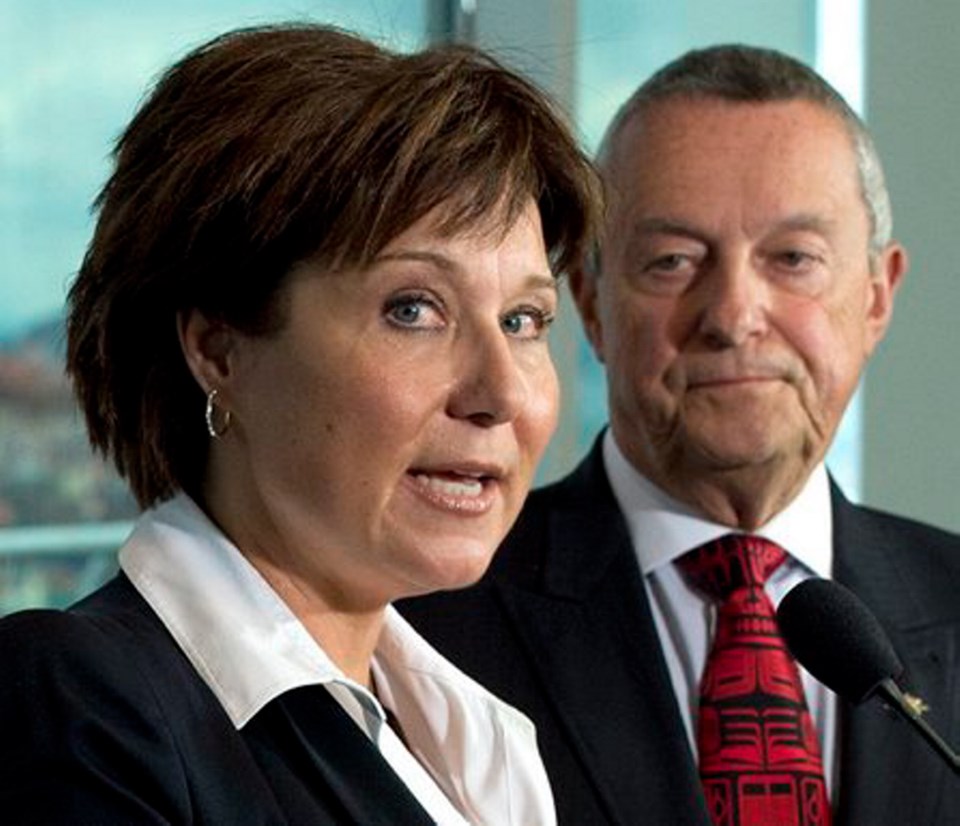As the teachers’ strike drags on, it has become clear the dispute is no longer just about terms and conditions of work. Premier Christy Clark and her cabinet mean to beat down the B.C. Teachers’ Federation, once and for all.
From her earliest days in office, when she was appointed education minister in 2001, Clark has distrusted the union. She railed about its efforts to emasculate the College of Teachers. She enacted legislation to strip bargaining rights such as class size out of the contract.
And now the courts have restored those rights, she appears determined to exact a price. The only kind of peace she’s interested in is a peace on her terms: We win, you lose.
There are precedents for this kind of hardball. Ronald Reagan solidified his hold on the U.S. presidency when he faced down a strike by air-traffic controllers. Reagan fired the striking workers and hired replacements. Critics predicted a backlash, but none occurred.
Similarly, Britain’s Margaret Thatcher took on the powerful miners’ union at the beginning of her term as prime minister. The public went along, and the trade-union movement suffered a defeat from which it has still not recovered.
Consider the context, though. Reagan and Thatcher enjoyed strong backing from the voters, in part because the labour leaders they fought had overplayed their hand.
In contrast, polling on the teachers’ strike shows that neither side has overwhelming support. The union began with a substantial lead, but recent surveys show the gap closing. The battle for hearts and minds is essentially a tie.
It’s at this point that political dynamics take over. The next provincial election is three years away. The government can afford some unpopularity now and still expect to recover.
That’s what happened with the HST debacle. Initially, it had all the appearance of a catastrophe, yet with time, public resentment subsided.
There is also the reality that white-collar unions generally, and the B.C. Teachers’ Federation in particular, tend to lean left rather than right. The three largest contributors to the provincial NDP before last year’s election were all public-sector unions.
In this sense, by depleting the teachers’ war chest, the government is defunding a political opponent. It is also sending a message to public employees: Take us on, and this could happen to you.
In fairness, it must be said the BCTF shares the blame. If the government’s strategy is to bury the union, the union’s strategy is to punish the government.
But this only works if Clark and her colleagues can be forced to back down. Is there any prospect of that?
Of course, nothing is permanent in politics. Perhaps it is feasible to build enough anger in the community that the government changes its tune.
Nevertheless, there is such a thing as a Pyrrhic victory. The longer the strike continues, the more it costs the membership. Even if the government eventually sweetens the pot, teachers could still end up net losers on the deal.
The crux of the matter is this: Faced with a government that feels itself invulnerable, the union has to weigh carefully how far it should go. In poker terms, it’s dangerous to bluff opponents who believe they hold winning hands.
None of this has anything remotely to do with fairness. It is power politics, plain and simple.
But the union does have an out. The government is appealing the court finding that came down on the side of the teachers.
If that appeal is lost, the union’s hand will be greatly strengthened. The better part of valour might be to settle now and hope for a favourable ruling to recoup any losses.



